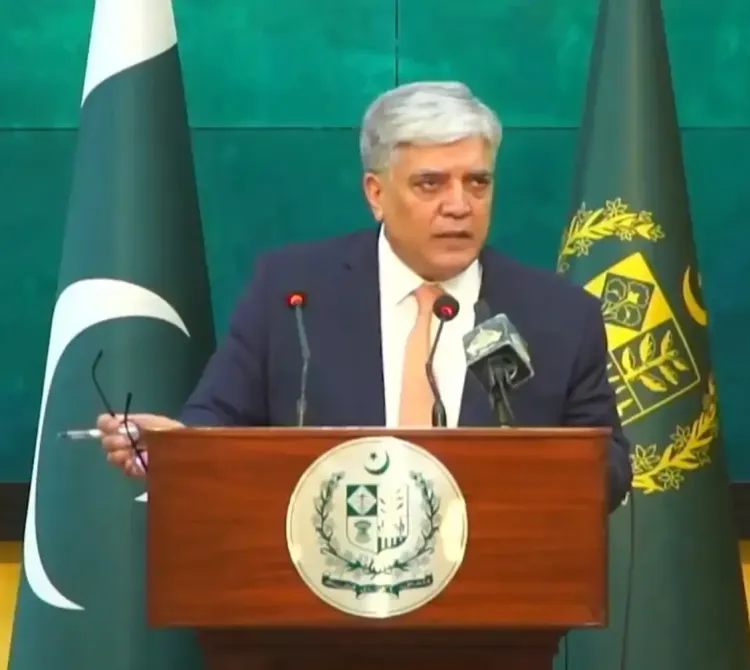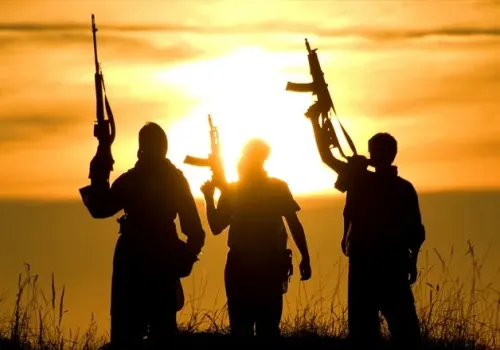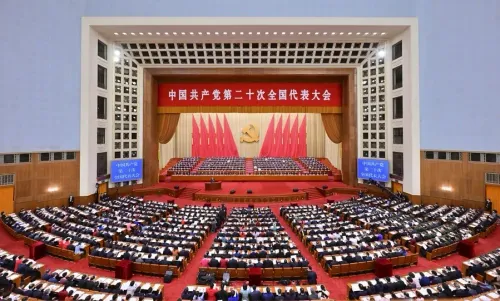Tahawwur Rana Identified as Canadian by Pakistani Authorities

Synopsis
Key Takeaways
- Rana's Canadian nationality emphasized by Pakistan.
- Extradition secured by India after extensive negotiations.
- Charges against Rana include murder and forgery.
- Rana's connections to ISI and terrorist groups.
- India aims to establish Pakistan's involvement in the attacks.
Islamabad, April 10 (NationPress) The Pakistani government stated that Tahawwur Hussain Rana, the alleged architect of the devastating 26/11 Mumbai terror attacks, recently extradited to India from the United States, has not renewed his Pakistani-origin documentation for the past twenty years and should be regarded exclusively as a Canadian citizen.
During a weekly press briefing, Ambassador Shafqat Ali Khan, spokesperson for the Pakistan Foreign Office (PFO), emphasized, "Regarding the issue of Tahawwur Rana, we have communicated our stance regarding his Canadian nationality. According to our records, he hasn’t even submitted an application for renewal of his Pakistani origin documents for the last twenty years. I reaffirm this position."
On the same day, India’s National Investigation Agency (NIA) announced that it had successfully obtained Rana's extradition after extensive efforts to bring the principal conspirator of the 2008 calamity to justice.
The 64-year-old, who is a Pakistan-born Canadian national, was previously held in judicial custody in the United States following proceedings initiated under the India-US Extradition Treaty. His extradition was realized after he exhausted all legal options to resist the move.
Rana is suspected of having close connections with Pakistan's Inter-Services Intelligence (ISI) and is accused of collaborating with David Coleman Headley, also known as Daood Gilani, and members of designated terrorist groups, including Lashkar-e-Taiba (LeT) and Harkat-ul-Jihadi Islami (HUJI), along with other co-conspirators based in Pakistan, to orchestrate the catastrophic attacks in Mumbai in 2008, resulting in the deaths of 166 individuals and injuring over 238.
The charges against Rana include criminal conspiracy, waging war against India, murder, forgery, and violations under the Unlawful Activities Prevention Act (UAPA).
Nevertheless, Pakistan has explicitly distanced itself from the extradition issue, with the spokesperson concluding his remarks by stating, "We will provide further updates in due course," suggesting Islamabad’s ongoing interest in the matter.
With Rana's extradition, India will gain a vital connection to establish Pakistan's involvement in the 26/11 Mumbai terror attacks.
Despite the evidence presented by the Government of India, Pakistan has consistently denied its participation.
Rana's role in the conspiracy behind the Mumbai attacks was corroborated by his childhood friend and another principal accused, David Coleman Headley, who testified in 2016 via video conference from an undisclosed location in the US, revealing his connections to Pakistan.
Headley acknowledged maintaining contact with Rana and even sought his approval to establish a business office in Mumbai as a cover for his operations.
The NIA's charge sheet indicated that Rana provided logistics, financial aid, and other support to Headley and others engaged in planning terror attacks in India.
Rana was convicted in the US for his affiliations with Lashkar-e-Taiba and assisting in plotting an assault against a Danish newspaper that published cartoons of Prophet Muhammad. However, he was acquitted of involvement in the 26/11 Mumbai attacks, but the trial revealed his connections with Headley.
The Federal Bureau of Investigation (FBI) stated in January 2013, following Rana's 2009 conviction, that he had confessed to involvement in the terror activities of Lashkar and the Mumbai attacks.









